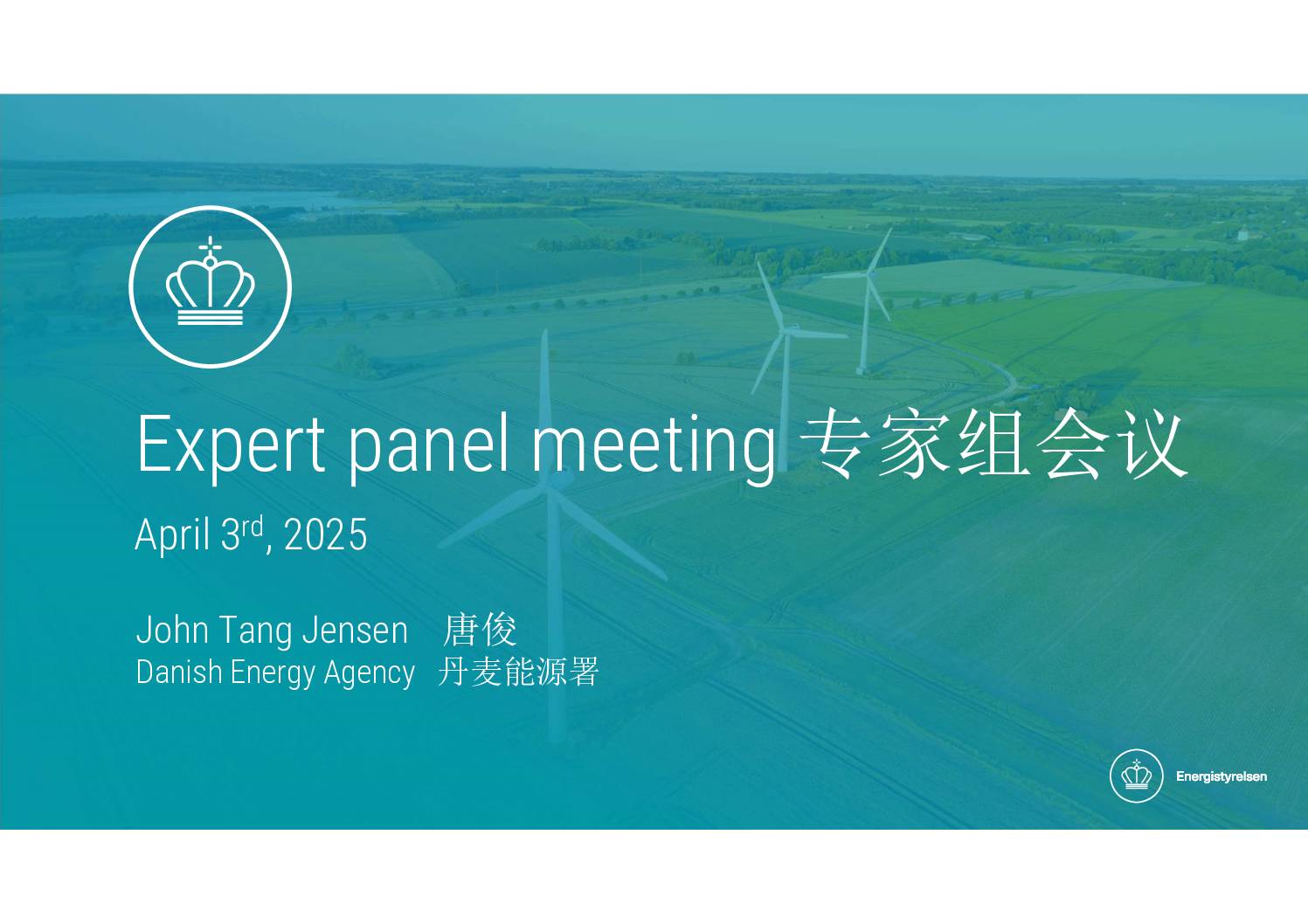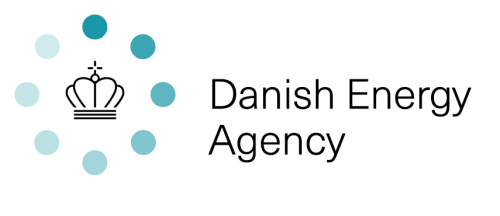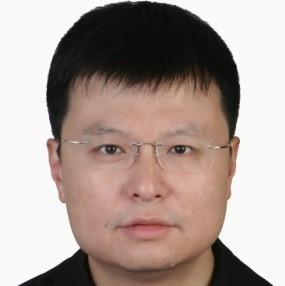On the 3rd April 2025, the Sino-Danish Expert Panel on Clean Heating held its sixth workshop online. The aim of this workshop was to discuss policy proposals regarding incentives for renewable solutions.
To initiate the discussion, John Tang, chief consultant at the Danish Energy Agency (DEA), gave a presentation highlighting the proposal incentives for renewable solutions previously developed throughout the Sino-Danish cooperation on energy:
- Power market reform – incentives for utilizing renewable surplus power for heating (electric boilers and heat pumps)
- Use an energy taxation and subsidy system to ensure wanted renewable solutions are preferred
- Implement heat metering and billing system
These recommendations are part of the “China Energy Transformation Outlook” on the one hand, and the report on “Prospects for Clean and Renewable Heating in China – Insights from Denmark” on the other hand.
John Tang described the incentives are in place in Denmark to support the implementation of renewable solutions in the district heating sector and their pros and cons. These incentives can be classified into seven categories:
- Pricing system: in Denmark, pricing is based on actual costs and the tariffs are usually structured in a fixed part covering financial costs, administration and maintenance, and a variable part based on heat consumption and heat production costs.
- Ownership structure: in Denmark, district heating companies are mostly municipally owned or directly owned by consumer cooperatives.
- Standard feasibility requirements: in Denmark, the methodology and assumptions (enabling consistent comparison across different scenarios) to use to develop feasibility studies for district heating projects are developed by the Danish Energy Agency and must be followed.
- Financial set-up: in Denmark, district heating companies can benefit from cheap, long-term loans.
- Approval system for district heating projects: in Denmark, a city council can only approve a project proposal if it offers the greatest socio-economic benefits, and the DEA provides guidelines for socio-economic analysis and datasets with assumptions.
- Digitalization: in Denmark, the operation of district heating systems is more and more digitalized.
- Skills development and quality standards: in Denmark, efforts have been made to provide quality education in the heating sector and thus ensure well-trained and skilled staff.
Each of these topics were discussed among the experts. The main outcomes of the workshop are the following:
- Pricing system
There is consensus among the Chinese experts that heating has over 80% penetration. According to the China Urban and Rural Construction Statistical Yearbook 2022, the total centralized heating area in China reached 13.78 billion square meters in 2022, with approximately 11.125 billion square meters located in urban areas.). It operates as a public service, making Danish-style pricing hard to apply directly. Unlike electricity and gas, heat is not yet treated as a fully market-based commodity, and pricing reforms are politically sensitive. Therefore, their recommendation is to focus first on technical solutions (e.g., metering and control) before broader pricing reforms. - Ownership structure
Thomas Pedersen and Silas Hupfeld emphasized that Denmark’s district heating systems, like those in the greater Copenhagen area, include various production units such as CHP plants, heat pumps, and other heat sources, which may be publicly or privately owned. The network itself is typically public, but heat production can come from both private and public sources. There is a focus on ensuring that private sector investments in utilizing waste heat are secured. The aim is to ensure efficient use of production units while managing the complexity of the heating system and addressing future challenges with both public and private sector involvement. Professor Jiang Yiqiang, associate professor Xia Jianjun, and Feng Wei explained that China is working on a system that includes both state-owned and private companies in the heating sector. The goal is to define which parts of the system can be privatized and which should remain state-owned. However, privatization is difficult due to government subsidies and the need to ensure public service delivery in northern China. While private companies in the south can be more flexible, the difference between southern and northern China complicates energy reforms. - Standard feasibility requirements
Chen Zhuolun detailed that China has a standard feasibility study template, which was established since the 1990s for all NDRC-related government investment projects, and already covers cost strategy, pollution emission estimates, and technical evaluations. The main difference with Denmark lies in scenario analysis, which is emphasized in Denmark’s feasibility studies, is not included in China’s standard template. Introducing scenario analysis into China’s feasibility studies could enhance project evaluation. Associate professor Xia Jianjun added that in northern China, climate and, therefore, district heating projects vary significantly by region, making standardized requirements difficult to apply uniformly. - Financial set-up
Liu Rong and Chen Zhuolun explained that as China’s heating sector is not fully marketized, financing through the market is difficult, especially for state-owned companies, which often lack profitability and loan repayment ability. One solution is the EMC (Energy Management Contract) model, where private capital is attracted, and energy savings are shared between the EMC company and the heating provider. State-owned enterprises have advantages such as larger scale, government support, and critical public roles, which make them more likely to receive funding for new projects. Private companies struggle with long payback periods and limited access to capital, making them less willing to invest in large-scale heating infrastructure with delayed returns. Chen Zhuolun also shared the example of Jinan Energy Group, which issued China’s first infrastructure investment fund dedicated to heating, raising 1.496 billion RMB from the private sector to drive further investment in upgrading and expanding heating networks. This marks a positive step for Chinese utility companies in using financial instruments to attract private investment. District energy networks require high upfront investment, which often causes cash flow pressure. Some city governments (e.g., Wuhan, Shenzhen, Shanghai) now invest in network infrastructure and lease it to state-owned companies to ease their financial burden in the early years. Associate professor Xia Jianjun added that listing is not new in China, since some district heating companies in China were listed as early as the 1990s, though some are no longer publicly traded. Listed companies often operate with integrated or diversified business structures. Stock market listing helps companies raise capital for development and expansion. - Approval system for district heating projects
Associate Professor Xia Jianjun acknowledged that each country has its own project approval process, requiring investigations and approval for project applications. It would be helpful to share information on how approval processes differ between countries, particularly between Denmark and China. - Digitalization
Professor Li Angui highlighted the potential for integrating energy systems with AI, such as adjusting supply-side strategies based on user-side demand. Professor Jiang Yiqiang agreed that digitalization, particularly when combined with AI technologies, is driving growth and improving service quality in the heating sector. While current “smart heating” systems have yet to reach full intelligence, the direction is clear, and pilot projects are already underway in multiple cities. The primary goal is to enhance user-level flexibility, allowing households to adjust heating according to their needs while reducing overall energy consumption. Numerous companies are developing smart heating software and hardware, covering the full chain from end users to distribution networks, with some extending to the heat source itself. - Skills development and quality standards
Liu Rong approved that professional talent is crucial for the transition to renewable energy, regardless of fossil fuel substitutes. State-owned enterprises have the resources and budget to invest in training heating professionals. Private enterprises typically hire skilled workers from society rather than invest in specialized talent development. Xu Wenlong highlighted that there is a need to improve the skill levels of domestic control personnel. Drawing on Denmark’s experience, China should focus on strengthening training for heating industry professionals. Professor Jiang Yiqiang detailed that most district heating companies conduct internal training based on their own equipment and management practices. Some heating enterprises have begun inviting industry experts to deliver specialized training and introduce new concepts. There are also professional associations in China’s heating sector offering paid technical training, indicating strong market demand for high-quality programs. International training should target the right audience—such as chief engineers or managers interested in low-carbon transition—and the content should combine international experience with China’s realities, ensuring practicality and applicability. Feng Wei agreed that there’s a need for training to address knowledge gaps, particularly for professionals with limited international exposure. Additionally, he suggested that refining heating system standards, especially around valve design, metering, and energy efficiency, is crucial. Incorporating advanced concepts like those in Denmark can improve building designs. Effective standards shape future building designs and renovations, and more precise energy efficiency measures can reduce heating system waste, thereby improving overall efficiency.
The inputs from the experts will help develop policy recommendations for the 15th Five Year Plan. In addition, this gave a great foundation for topics to address as part of the next phase of the Strategic Sector Cooperation on Clean Heating between Denmark and China.
Download sourceShare this

Sector: District energy
Country / Region: China, Denmark
Tags: digitalisation, district heating, energy sector, incentives, policy, renewable energyIn 1 user collection: Sino-Danish Clean and Renewable Heating Cooperation Centre – Events
Knowledge Object: User generated Initiative
Publishing year: 2025




